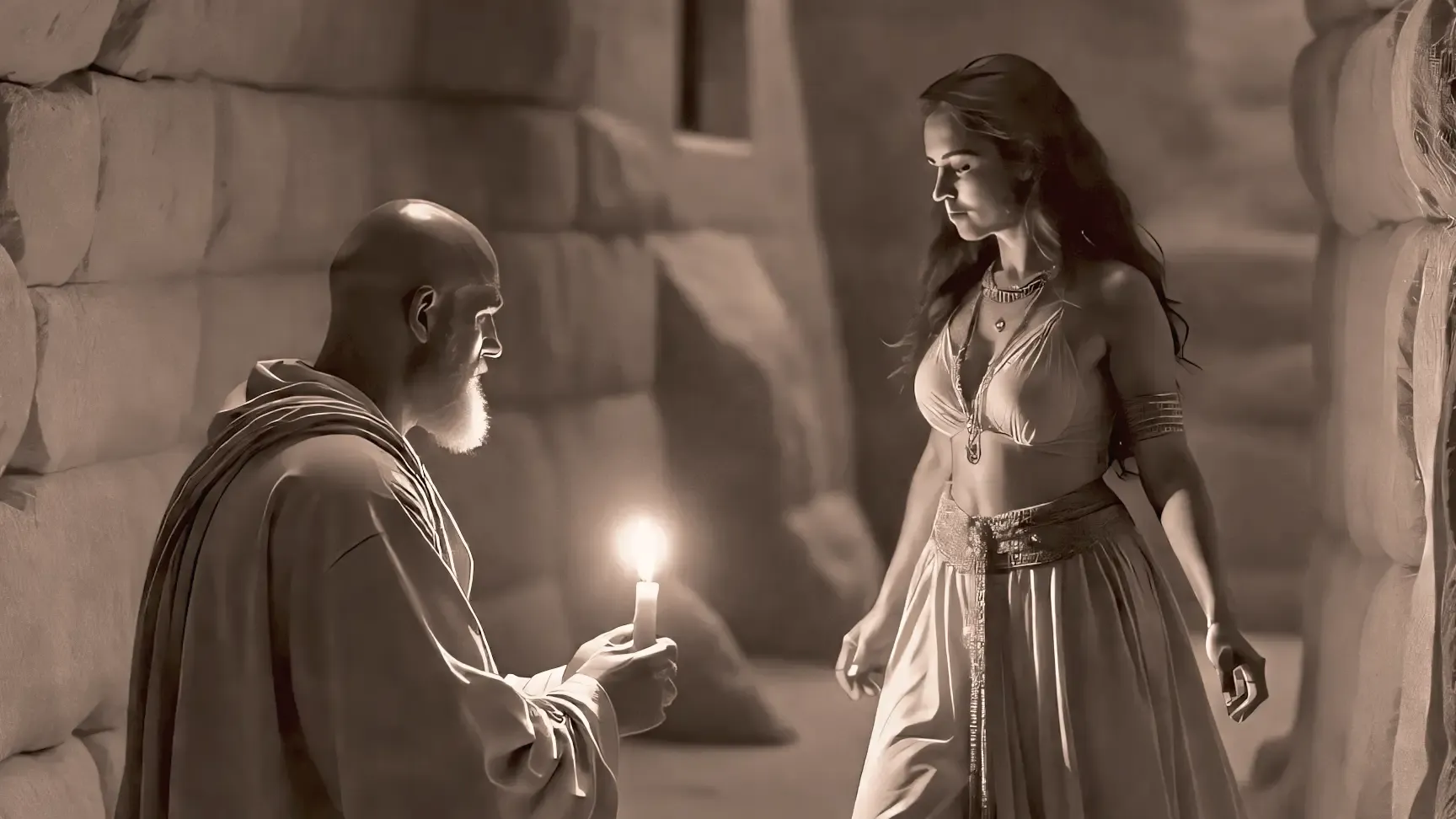Lo-Ammi: A Love That Will Not Let Go

“Then said God, Call his name Lo-ammi:
for ye are not my people” —Hosea 1:9
The prophets of Israel suffered grievously because of the messages they proclaimed. They were ridiculed, mocked, threatened and hated by a religious government that had sadly lost its way. The prophet Hosea, however, was to suffer in a most unusual way: Marry an unfaithful wife and love her and cherish her despite the heartbreak he would experience.
That wife, Gomer, was a perfect picture of the people of the Northern Kingdom (Israel). The names that were given to their children were very expressive of God’s disappointment with His people. But just as Hosea’s love for Gomer never left his heart, neither did God’s love for Israel ever turn into total disgust and abandonment. “Afterward shall the children of Israel return, and seek the Lord their God, and David their king; and shall fear the Lord and His goodness in the latter days” (Hosea 3:5).
Hosea’s Ministry
Hosea was a prophet to the Northern Kingdom of Israel before its fall in 722 B.C. His ministry spanned 40 years. He was a contemporary of Amos, Isaiah and Micah. During the beginning of Hosea’s ministry, Jeroboam II was king of Israel.
It was a time of prosperity and affluence, national stability and the development of a formidable military. But when Jeroboam died, the population faced many uncertainties that had been fueled by the spiritual condition of the people.
With six kings over the course of 30 years, the nation could never achieve the same stability and consequent prosperity it had under Jeroboam. Four of these six kings were assassinated. At the same time, Assyria was growing and becoming a cruel and vicious enemy that, seemingly, was invincible.
Moreover, Israel’s relationship with the Lord God was slipping badly. Hosea preached against the worship of Ba’al (Hosea 2:8; 11:2; 13:1), whose worship involved “imitative magic.” The sexual behavior at these shrines was expected to cause the Ba’als to respond in like manner, producing fertile seed and rain for a good crop. Through Hosea’s marriage to Gomer, God warned of the coming disaster that would fall on Israel because of God’s judgment.
The first child born from Gomer was named Jezreel, the place where Israel’s bow would be broken. The second child, a daughter, was given the name Lo-Ruhamah (“not pitied,” “not loved”). Then Gomer gave birth to a son, Lo-Ammi (“not my people”).
However, God quickly reminds us that God has not abandoned the Jewish people. Though they have been separated by political borders (Northern Kingdom, Southern Kingdom) they are still God’s people. A modern example is the Christians in Pakistan and the Christians in India. They are both God’s children, but separated by manmade borders. Promises made to one are also promises made to the other. The reason I focus on this is because some Replacement Theologians confuse this issue: Israel and Judah are both under the blessings of the Abrahamic Covenant (Genesis 15).
In Hosea 1:7, we read, “But I will have mercy upon the house of Judah, and will save them by the Lord their God, and will not save them by bow, nor by sword, nor by battle, by horses, nor by horsemen.” There will be a work of Divine intervention, the nature of which could easily be considered “miraculous.”
We learn much when God chose to directly intervene on behalf of Hezekiah, when Jerusalem was besieged by an assault of the Assyrians. “For I will defend this city, to save it, for mine own sake, and for my servant David’s sake. And it came to pass that night, that the angel of the Lord went out, and smote in the camp of the Assyrians an hundred fourscore and five thousand: and when they arose early in the morning, behold, they were all dead corpses (2 Kings 19:34-35). The angel did this work of judgment for the benefit of God’s name and also for the benefit of David, to whom God had given many promises.
Notice the words, “for mine own sake, and for my servant David’s sake.” These statements of Divine motivations for the deliverance of Jerusalem are extremely important. When God Almighty does something for his own sake, this is the highest motivation possible. There are no conditions that could possibly break the fulfillment of God’s promise.
We see this principle throughout Scripture. God often does things for the sake of someone else. “And it came to pass from the time that he had made him overseer in his house, and over all that he had, that the Lord blessed the Egyptian’s house for Joseph’s sake; and the blessing of the Lord was upon all that he had in the house, and in the field” (Gen. 39:5). The motivations for the Lord to bless the Egyptian’s house were not directly intended for the benefit of the Egyptian but for the benefit of Joseph, whom the Lord regarded with favor, though, of course, the Egyptian did indeed receive benefit. If a ship is in distress and sinking, the Lord may perform an act of deliverance and rescue for the sake of a particular person on the ship, though everyone on the ship does benefit.
This is one of the main features of the Gog-Magog war in Ezekiel 38-39 which, as a futurist and premillennialist, I see as a still-future war. In Ezekiel 36, God Almighty explains why He will deliver Israel.
In verse 22, God says, “I do not this for your sakes, O house of Isael, but for mine holy name’s sake, which ye have profaned among the heathen, whither ye went.”
The heathen received a wrong impression of God when they saw the sinfulness of His people. Perhaps they thought that God was unable, or unwilling to upgrade the moral behavior of His people, but He makes clear the awesome implications of all this: “And I will sanctify my great name, which was profaned among the heathen, which ye have profaned in the midst of them; and the heathen shall know that I am the Lord, saith the Lord God, when I shall be sanctified in you before their eyes. For I will take you from among the heathen, and gather you out of all countries, and will bring you into your own land” (vss. 23-24).
In other words, God’s name will now be perceived as being truly great when He fulfills His promises to Israel. His greatness will be seen in His work among the Jews. Both God and Israel will benefit.
The Hebrew prophets present God as having great emotional struggle over Israel. God is not a bully who always gets His way, nor is He emotionally disconnected from His people, nor is He controlling His people as a puppeteer pulls strings and gets the desired response.
God is passionate but often heartbroken—“turn ye, turn ye from your evil ways; for why will ye die, O house of Israel?” (Ezek. 33:11; see also Ezek. 22:30; Isa. 65:12; Matt. 23:37). Any theology of Divine sovereignty that does not acknowledge this is not biblical.
God’s Faithful Love Will Prevail
I cited Hosea 3:5 earlier in this study, and will now refer to Hosea 6:1-2, which gives us the hope of a renewed people and a prophetic timeline of Israel’s restoration: “Come, and let us return unto the Lord: for he hath torn, and he will heal us; he hath smitten, and he will bind us up. After two days will he revive us: in the third day he will raise us up, and we shall live in his sight.”
With great literary skill inspired by God, Hosea wonderfully paints a picture of Israel’s unfaithfulness using a number of images of family nature and agriculture. Israel is like: an immoral and wandering wife, a negligent mother, an illegitimate child, an ungrateful son, a stubborn heifer, a silly dove and a choice and fruitful vine.
Yet Israel’s repeated rejection of God does not exhaust the depths of Divine love – something that far exceeds our ability to comprehend.



